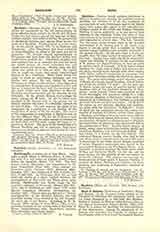

Basilides.—Martyrs bearing the name of Basilides are mentioned in the old martyrologies on three different days, namely, on 10, 12, and June 28. Under the last date is placed the long list of Alexandrian martyrs who suffered during the persecution of Septimius Severus, and among these occurs the name of a Basilides. Eusebius gives an entire chapter of his church history (VI, v) to Basilides and Potamiana. After Potamiana had been sentenced to death Basilides, an officer of the court, led her to execution. He showed himself compassionate to Potamiana and kept back the heathen rabble who would have mocked her. Potamiana thanked him and exhorted him to be consoled, for after her death she would entreat the Lord concerning him and would reward his kindness. Shortly after this Basilides was called on to take an oath. He replied that he could not swear, and openly acknowledged himself to be a Christian. When taken before the judge he made an unwavering confession and was thrown into prison. He was visited by several Christians to whom he related that, three days after her martyrdom, Potamiana had appeared to him and had set a crown on his head with the assurance that the Lord would soon take Basilides to Himself. Basilides was then baptized and the next day he was beheaded. In the present Roman martyrology his name appears on June 30. In the so-called martyrology of St. Jerome and in the present list of Roman martyrs the name of a Basilides appears on 10 and June 12. On each occasion the name is accompanied by a statement of the locality of the martyrdom at Rome on the Via Aurelia. The names of the companions in martyrdom of Basilides vary on the two different days. The list for June 12 is very involved; apparently the same martyr is referred to on both days and for some reason his name is repeated on June 12. The Acts of the martyrdom of a Roman Basilides are still in existence; they have, however, no historical existence and belong to a date considerably later.
J. P. KIRSCH

